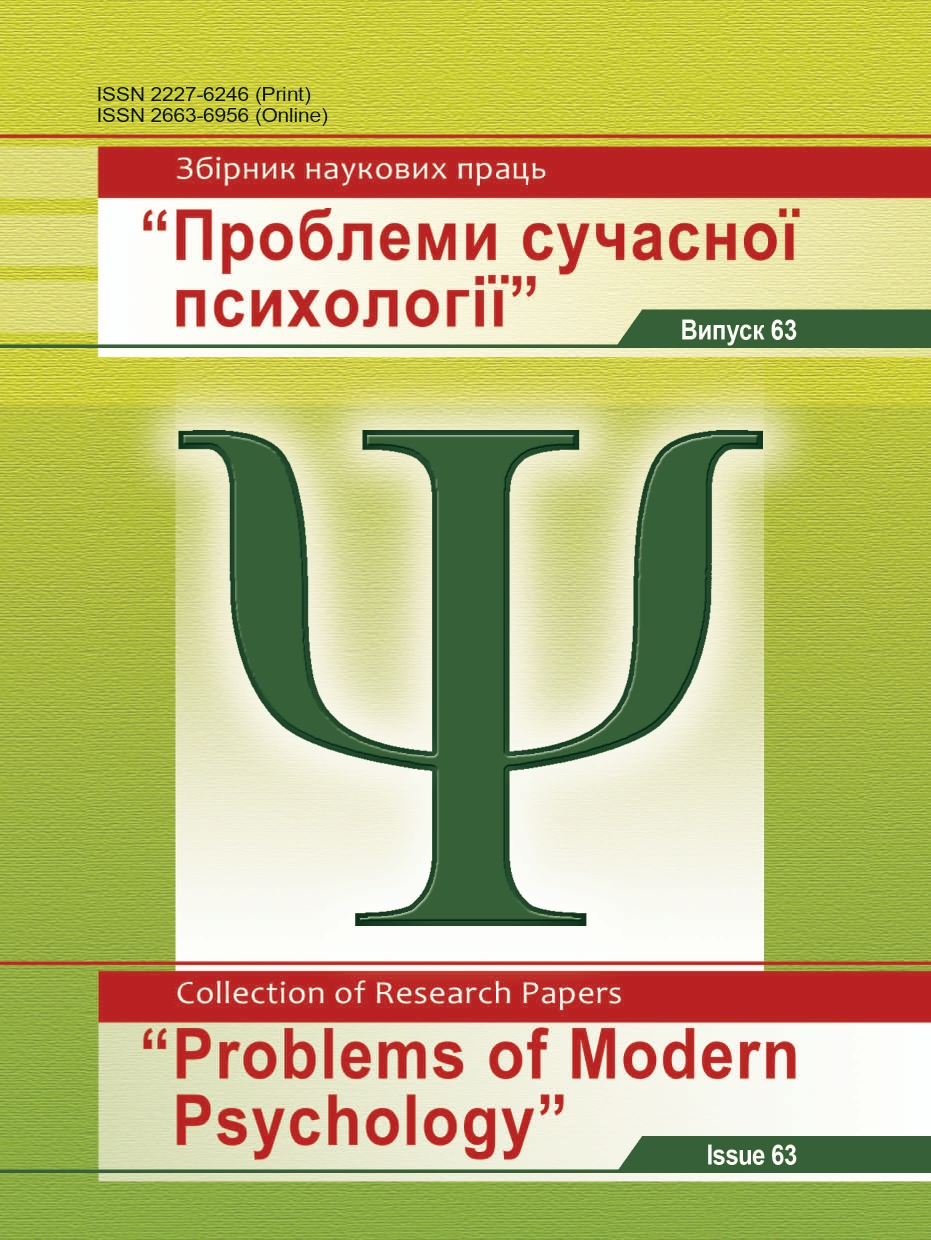Psychosemantics of Types of Military Stress of Combatants
DOI:
https://doi.org/10.32626/2227-6246.2024-63.113-136Keywords:
types of military stress of combatants, Post-traumatic stress disorder, Chronic constant (or prolonged) stress, Acute situational stress of combatants, a painful emotional state, disorders of the servicemen’s mental activityAbstract
The purpose of this article is to introduce Psychosemantics of Types of Military Stress of Combatants: we mean Chronic constant (or prolonged) stress and Acute situational stress of combatants with Post-traumatic stress disorder.
Methods of the research. The following theoretical methods of the research were used to solve the tasks formulated in the article: a categorical method, structural and functional methods, the methods of the analysis, systematization, modeling, generalization. The experimental method was the method of organizing empirical research.
The results of the research. We proved, that combatants with Chronic constant (or prolonged) stress also observed variability in the occurrence and development of a painful emotional state, but, as a rule, at the first stage there was an accumulation of emotional tension, which, due to the interaction of certain personal characteristics and situational influences, did not find a response. We understood, that the main disorders of the servicemen’s mental activity are related to the experience that traumatizes the psyche and which is caused by military conditions, but their degree largely depends on the totality of the reaction to this factor of the entire unit. The collective reaction has a strong influence on the discipline and organization of military units.
Conclusions. Therefore, it should be noted that Post-Traumatic Stress Disorders occur in a case of combatants as a delayed or protracted reaction to a Psycho-Traumatic Stress Event or a situation of an exclusively threatening or deadly nature (combat operations, watching the violent death of others, the role of a victim of torture, being in captivity, etc.). In its essence, Post-Traumatic Stress Disorder is an appropriate reaction of a mind and a body to a powerful emotional stimuli of a stressful situation that occurred.
Downloads
Published
How to Cite
Issue
Section
License
Copyright (c) 2024 Kharchenko Yevhen, Onufriieva Liana

This work is licensed under a Creative Commons Attribution-NonCommercial 4.0 International License.
Copyright
The Editorial Board has the full right to publish original scientific papers containing results of theoretical and experimental research works which are not currently subject to review for publication in other scientific editions. The Author shall transfer to the editorial board of the Collection the right to spread the electronic version of the paper, as well as the electronic version of the paper translated into English (for papers originally submitted in Ukrainian and Russian) by all kinds of electronic means (placement at the official website of the Collection, electronic databases, repositories etc).
The Author of an article reserves the right to use materials of the paper, without approval with the editorial board and the founders of this Collection: a) partially or fully, for educational purposes; b) for writing own dissertation papers; c) for preparation of abstracts, conference reports and presentations.
The Author of an article can place electronic copies of the paper (including the final electronic version downloaded from the official website of the Collection) at:
- personal web resources of all Authors (websites, webpages, blogs etc.);
- web resources of the institutions where the Authors are employed (including electronic institutional repositories);
- non-profit public access web resources (for example, arXiv.org).
But in all cases, it is obligatory to have a bibliographic reference to the paper, or a hyperlink to its electronic copy placed at the official website of this Collection.






